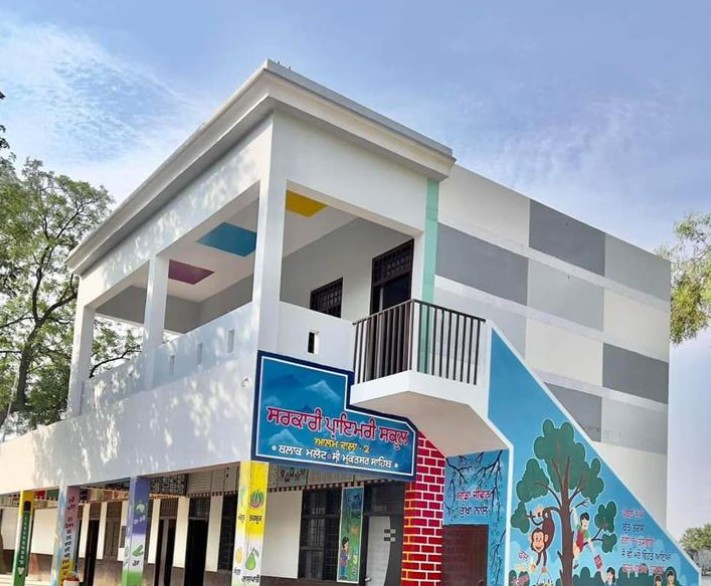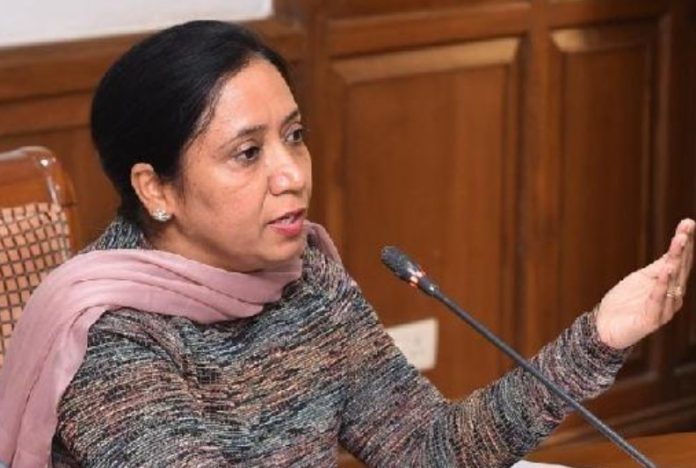The Punjab Government has taken a significant stride in its commitment to improving the lives of vulnerable children through the heartfelt and impactful initiative known as ‘Project Jeevanjot’. This pioneering project has proven to be a beacon of hope for those children who were left without families or were struggling under severe socio-economic and emotional hardships. By giving new life and direction to 268 children across the state, the government has demonstrated a deeply compassionate and proactive approach toward child welfare.
Launched with the intent to reach out to children who are either orphaned, abandoned, or in need of care and protection, Project Jeevanjot is more than just a policy on paper. It is an initiative that speaks of action, compassion, and a genuine desire to change lives. Over the past year, the project has identified, rehabilitated, and supported children in distress, ensuring that they are not left to fend for themselves or slip through the cracks of society’s safety nets.
The core vision behind Project Jeevanjot is to provide these children with not just basic necessities like food, clothing, and shelter, but also with access to quality education, health care, and psychological support. Every child brought under the umbrella of the project is given a customized rehabilitation plan depending on their age, background, and specific needs. In many cases, this means placing the child in a caring foster environment or under the guardianship of institutions that align with their emotional and developmental requirements.
One of the most commendable aspects of the project has been its focus on integration, rather than mere institutionalization. Instead of creating more orphanages or state-run homes, the Punjab Government has actively collaborated with civil society organizations, NGOs, and community leaders to place children in nurturing settings where they can receive love, care, and a sense of belonging. For many of the 268 children who have been helped so far, this has meant being reunited with extended family members or being placed with loving foster families.
Additionally, Project Jeevanjot ensures that every child is given a chance to dream and achieve. Educational support is a key pillar of the project, with children being enrolled in nearby government or private schools, receiving tutoring support where necessary, and even being provided with digital tools like tablets or online access for remote learning. The state government is committed to ensuring that these children have the same opportunities as their more fortunate peers and are not held back by the circumstances of their birth or early life.

Healthcare is another area where the project has made remarkable progress. Every child brought under Project Jeevanjot is given a complete medical check-up and regular health monitoring. In many cases, children suffering from malnutrition or untreated chronic illnesses were identified and provided with urgent medical care. Psychological counseling and trauma support are also integral components of the rehabilitation process, ensuring that the emotional wounds these children carry are not ignored. Trained counselors work with each child to help them heal, rebuild trust, and learn to navigate the world with resilience.
The role of the district administration has been vital in the success of Project Jeevanjot. District Child Protection Units (DCPUs), with the assistance of the police, education, and health departments, have created a strong inter-departmental network to identify children in need. From running outreach programs in slum areas to intervening in cases of domestic abuse or child labor, the project has shown that proactive governance can change lives. In some touching instances, children who had been reduced to living on the streets or working under harsh conditions have now returned to school, with a roof over their heads and a future to look forward to.
The financial support offered to these children and their caregivers is another crucial element of the project’s success. Monthly stipends, scholarships, and emergency funds for medical or educational needs ensure that children are not denied any opportunity due to lack of resources. The government has also been working to create long-term safety nets, including access to vocational training and mentorship programs for older children who are nearing adulthood.
The impact of Project Jeevanjot is not just visible in statistics, but in the stories of transformed lives. For instance, a 10-year-old boy from a border village who lost both parents to a tragic accident now lives with a caring foster family and has become a bright student with aspirations of becoming a doctor. Similarly, a teenage girl rescued from child labor is now attending school regularly and has received training in tailoring, which she hopes to turn into a business one day.
Project Jeevanjot has also brought about greater awareness among the public about the importance of child protection. The media, local community groups, and youth volunteers have played a role in spreading the message, encouraging people to come forward and report cases of child abandonment or abuse. The initiative has also helped reduce the social stigma around foster care and adoption, encouraging more families to open their homes and hearts to children in need.
From a governance perspective, the Punjab Government’s success with Project Jeevanjot demonstrates the power of empathy and strategic planning. It proves that when policies are implemented with sincerity and monitored rigorously, real change is possible. By investing in its most vulnerable population—its children—the state is not only fulfilling a moral responsibility but also strengthening its future.
Looking ahead, the government plans to expand the reach of Project Jeevanjot. There is a focus on incorporating more technology into the project for better tracking and case management, as well as on building a larger pool of trained social workers and counselors. The aim is not just to rescue children from crisis situations but to ensure they thrive in the long run.
In conclusion, Project Jeevanjot is a shining example of how thoughtful governance, when rooted in compassion, can truly transform lives. By bringing hope and stability to 268 children so far, the Punjab Government has reaffirmed its commitment to creating a society where every child, no matter their background, is given a fair shot at life. As the project continues to grow and evolve, it stands as a testament to what is possible when a government prioritizes the welfare of its youngest citizens.


